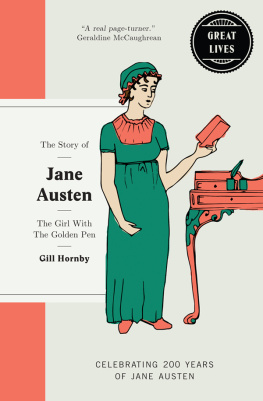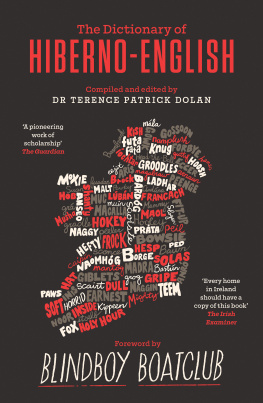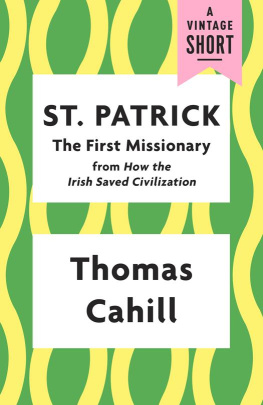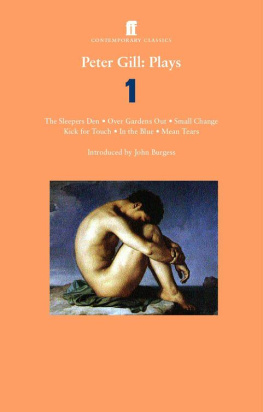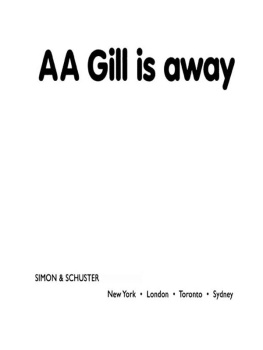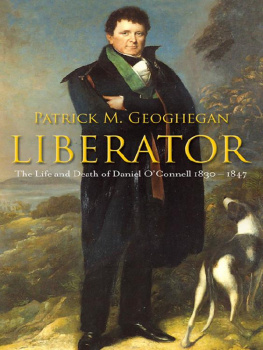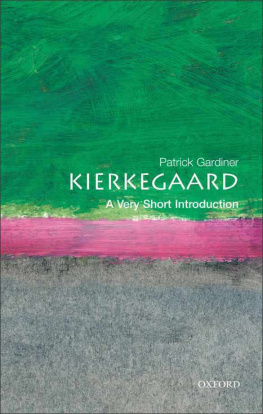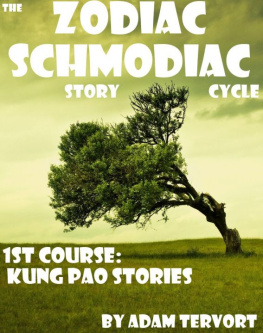Patrick Gill - Constructing Coherence in the British Short Story Cycle
Here you can read online Patrick Gill - Constructing Coherence in the British Short Story Cycle full text of the book (entire story) in english for free. Download pdf and epub, get meaning, cover and reviews about this ebook. year: 2018, publisher: Taylor & Francis (CAM), genre: Home and family. Description of the work, (preface) as well as reviews are available. Best literature library LitArk.com created for fans of good reading and offers a wide selection of genres:
Romance novel
Science fiction
Adventure
Detective
Science
History
Home and family
Prose
Art
Politics
Computer
Non-fiction
Religion
Business
Children
Humor
Choose a favorite category and find really read worthwhile books. Enjoy immersion in the world of imagination, feel the emotions of the characters or learn something new for yourself, make an fascinating discovery.

- Book:Constructing Coherence in the British Short Story Cycle
- Author:
- Publisher:Taylor & Francis (CAM)
- Genre:
- Year:2018
- Rating:5 / 5
- Favourites:Add to favourites
- Your mark:
- 100
- 1
- 2
- 3
- 4
- 5
Constructing Coherence in the British Short Story Cycle: summary, description and annotation
We offer to read an annotation, description, summary or preface (depends on what the author of the book "Constructing Coherence in the British Short Story Cycle" wrote himself). If you haven't found the necessary information about the book — write in the comments, we will try to find it.
Patrick Gill: author's other books
Who wrote Constructing Coherence in the British Short Story Cycle? Find out the surname, the name of the author of the book and a list of all author's works by series.
Constructing Coherence in the British Short Story Cycle — read online for free the complete book (whole text) full work
Below is the text of the book, divided by pages. System saving the place of the last page read, allows you to conveniently read the book "Constructing Coherence in the British Short Story Cycle" online for free, without having to search again every time where you left off. Put a bookmark, and you can go to the page where you finished reading at any time.
Font size:
Interval:
Bookmark:
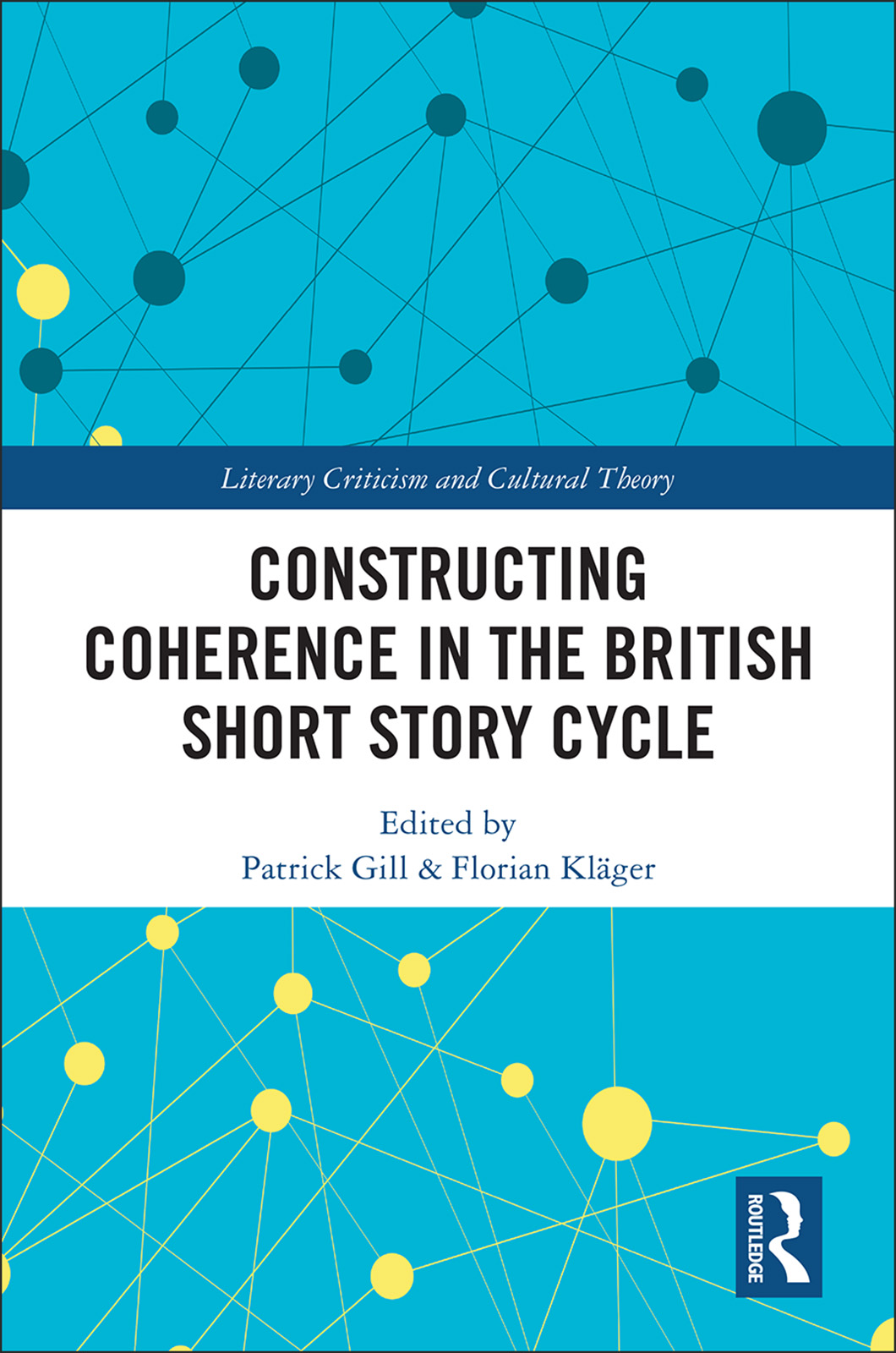
Constructing Coherence in the British Short Story Cycle
The first major collection of essays on the contemporary British short story cycle, this volume offers in-depth explorations of the genre by comparing its strategies for creating coherence with those of the novel and the short story collection, inquiring after the ties that bind individual short stories into a cycle. A section on theory approaches the form from the point of view of genre theory, cognitive literary studies, and book studies. It is followed by investigations of hitherto neglected aspects of the generic tradition of the British short story cycle and how they relate to the contemporary outlook of the form. Readings of individual contemporary cycles, illustrating the forms multifaceted uses from the presentation of sexual identities to politics and trauma, make up the third and most substantial part of the volume, placing its focus squarely on the past decades. Unique in its combination of a focus on the literary traditions, politics, and markets of the UK with a thorough examination of the genres manifold formal and thematic potentials, the volume explores what is at the heart of the short story cycle as a literary form: the constant negotiation between unity and separateness, collective and individual, of coherence and autonomy.
Patrick Gill received his PhD in English literature from Johannes Gutenberg University Mainz where he is now a senior lecturer. His teaching and publications focus on the efficacy of literary form. He is the author of Origins and Effects of Poetic Ambiguity in Dylan Thomass Collected Poems (2014) and has published essays on poetry, contemporary fiction, and British and American TV culture.
Florian Klger is Professor of English at the University of Bayreuth. He holds a PhD in English literature from the University of Dsseldorf and has published several books and essays on early modern literature, diasporic fiction, and the contemporary novel. His research interests are linked by the question after the formal resources of literature for the creation of social cohesion.
Literary Criticism and Cultural Theory
The Waste Fix
Seizures of the Sacred from Upton Sinclair to the Sopranos
William G. Little
Figures of Finance Capitalism
Writing, Class and Capital in Mid-Victorian Narratives
Borislav Knezevic
The Other Orpheus
A Poetics of Modern Homosexuality
Merrill Cole
The Individual and the Authority Figure in Egyptian Prose Literature
Yona Sheffer
Constructing Coherence in the British Short Story Cycle
Edited by Patrick Gill & Florian Klger
For a full list of titles published in the series, please visit www.routledge.com
First published 2018
by Routledge
711 Third Avenue, New York, NY 10017
and by Routledge
2 Park Square, Milton Park, Abingdon, Oxon OX14 4RN
Routledge is an imprint of the Taylor & Francis Group, an informa business
2018 Taylor & Francis
The right of the editors to be identified as the authors of the editorial material, and of the authors for their individual chapters, has been asserted in accordance with sections 77 and 78 of the Copyright, Designs and Patents Act 1988.
All rights reserved. No part of this book may be reprinted or reproduced or utilised in any form or by any electronic, mechanical, or other means, now known or hereafter invented, including photocopying and recording, or in any information storage or retrieval system, without permission in writing from the publishers.
Trademark notice: Product or corporate names may be trademarks or registered trademarks, and are used only for identification and explanation without intent to infringe.
Library of Congress Cataloging-in-Publication Data
CIP data has been applied for.
ISBN: 978-1-138-50388-5 (hbk)
ISBN: 978-1-315-14561-7 (ebk)
Typeset in Sabon
by codeMantra
Patrick Gill and Florian Klger
While not nearly as comprehensively researched as other literary forms, the short story cycle has undeniably, over the past fifty years, received its share of critical attention. From Forrest Ingrams Representative Short Story Cycles of the Twentieth Century: Studies in a Literary Genre (1971) and Susan Garland Manns The Short Story Cycle: A Genre Companion and Reference Guide (1989) to James Nagels The Contemporary American Short-Story Cycle (2001), J. Gerald Kennedys Modern American Short Story Sequences: Composite Fictions and Fictive Communities (1995), and Elke Dhoker and Gert Van den Bossches special issue of Interfrences littraires/Literaire interferenties entitled Cycles, Recueils, Macrotexts: The Short Story Collection in a Comparative Perspective (2014), every decade has seen the publication of a major study on the form, and every one of these studies favours certain methodological approaches. Thus, Ingrams book incorporates specimens from several different literary traditions and endeavours to foreground the defining features of the form based mostly on putative authorial intention. Also proceeding from the vantage point of authorial intention, Mann introduces a more formalist understanding of the short story cycle in her book, while her focus is clearly on Irish and American writers of the twentieth century. Nagel not only synthesizes and updates methodological interests on display in earlier studies, but also introduces a clear thematic focus in terms of the geographical and historical provenance of the texts he is interested in. A number of arguments against these earlier critics, whose interest is by and large in the idea of cohesiveness and formal homogeneity in short story cycles, are fielded by Kennedy in the introduction to his edited collection, as well as by Robert Luscher in his essay The Short Story Sequence: An Open Book (1989). Their primary fascination with the short story cycle is based on the forms openness and the way it relies on readers to discern patterns and activate meanings. Indeed, to critics from Timothy C. Alderman to Rolf Lundn, the short story cycle is fundamentally characterized by this friction between centripetal and centrifugal narrative forces (Lundn 4950). As Dhoker and Van den Bossche affirm in the introduction to their comparative journal issue tracing linked stories (8) in different national traditions, this tension between the part and the whole is not just a feature of the short story cycle itself, but has also arisen as the focus of extensive critical debate (9).
Many of the debates central issues are rehearsed, with authority, by one of its main protagonists in Elke Dhokers chapter in this volume. Crucially, Dhoker stresses that none of the above features identified by critics of the short story cycle as productive of its generic identity are exclusive to this form: they clearly lend coherence and unity to any longer narrative, or when missing or weakly marked signal the absence of coherence and unity. If coherence in the short story cycle derives from authorial intention, thematic foci, formal cohesion, or the writerly participation of readers, how is the function of these features enhanced by use in this form, rather than in a novel or other longer narrative genres? Is there anything specific about their use in the short story cycle? Does the form, through these properties, lend itself to the negotiation of particular topics and concerns more readily than to others? In exploring these questions, the present volume makes use of the concept of the affordances of form recently introduced into literary studies by Caroline Levine. She argues, in
Font size:
Interval:
Bookmark:
Similar books «Constructing Coherence in the British Short Story Cycle»
Look at similar books to Constructing Coherence in the British Short Story Cycle. We have selected literature similar in name and meaning in the hope of providing readers with more options to find new, interesting, not yet read works.
Discussion, reviews of the book Constructing Coherence in the British Short Story Cycle and just readers' own opinions. Leave your comments, write what you think about the work, its meaning or the main characters. Specify what exactly you liked and what you didn't like, and why you think so.

